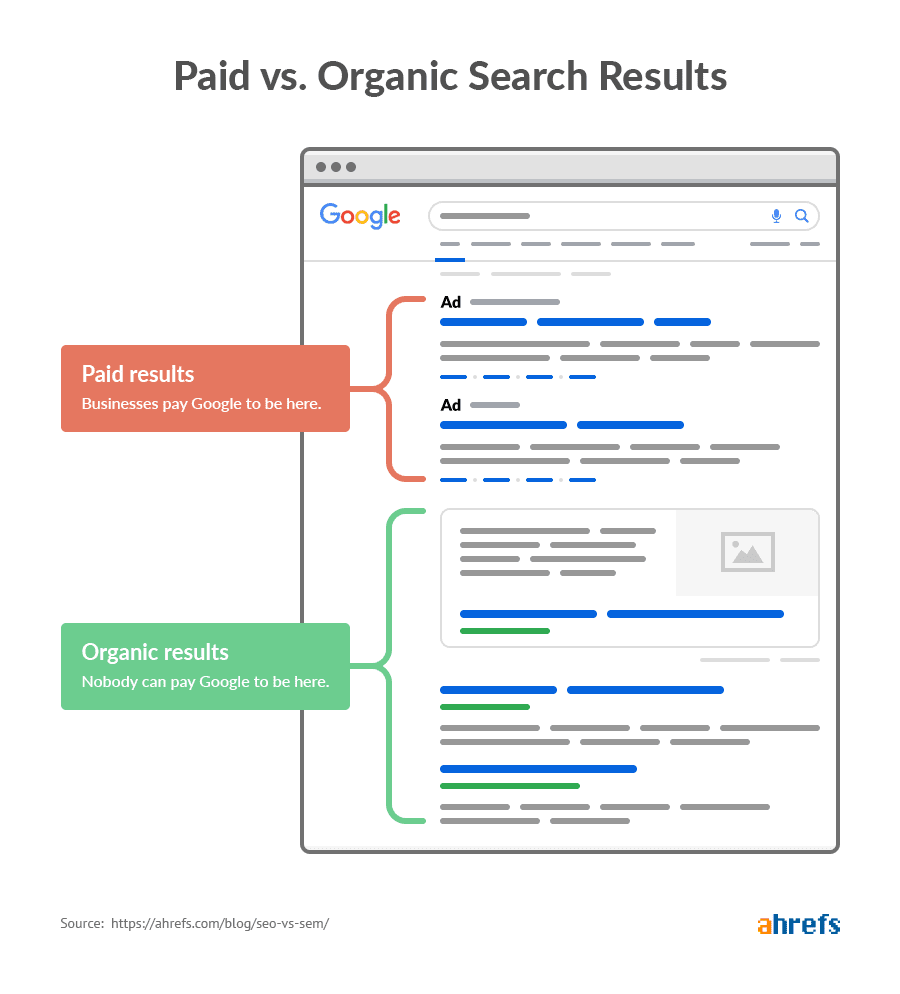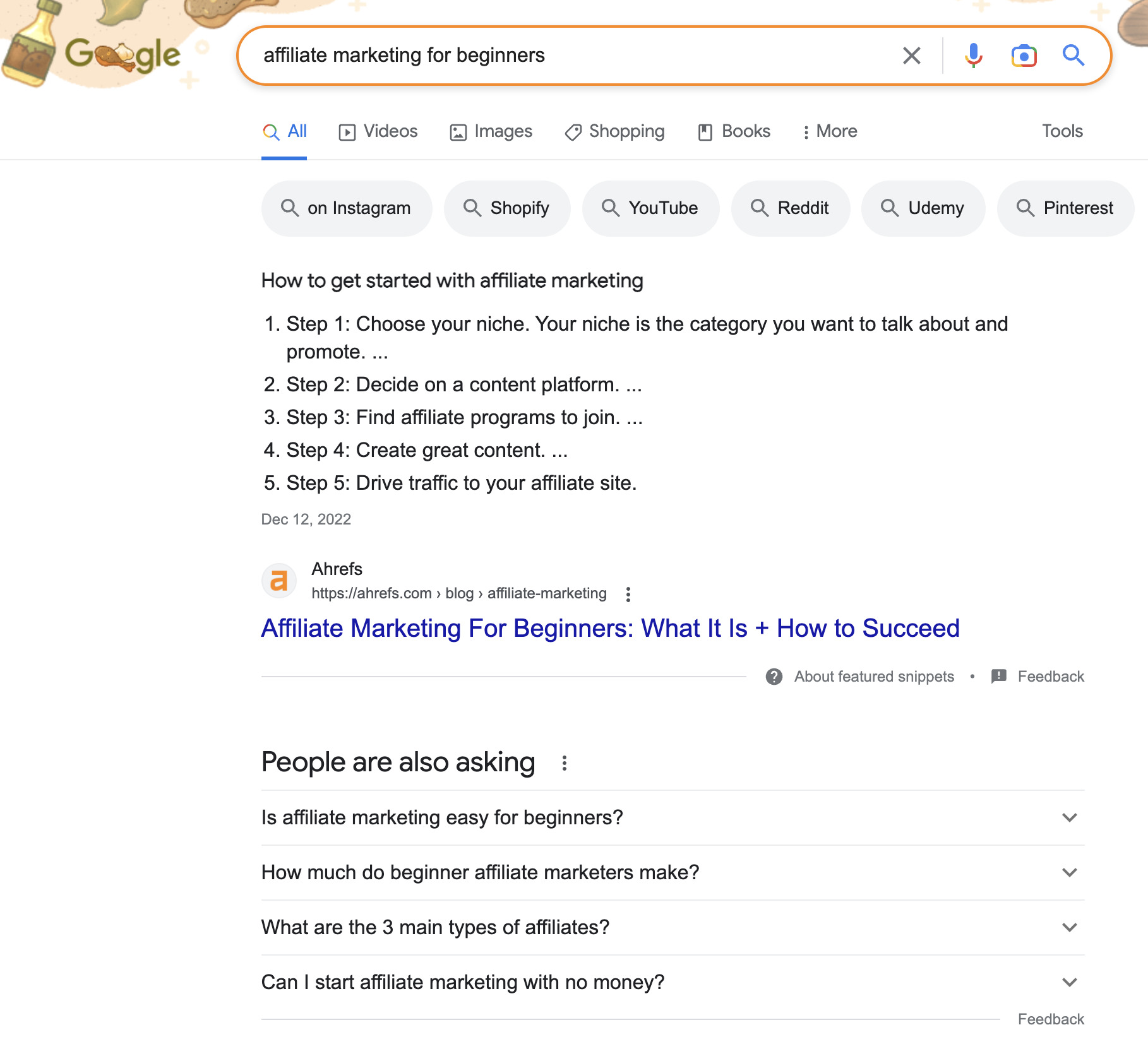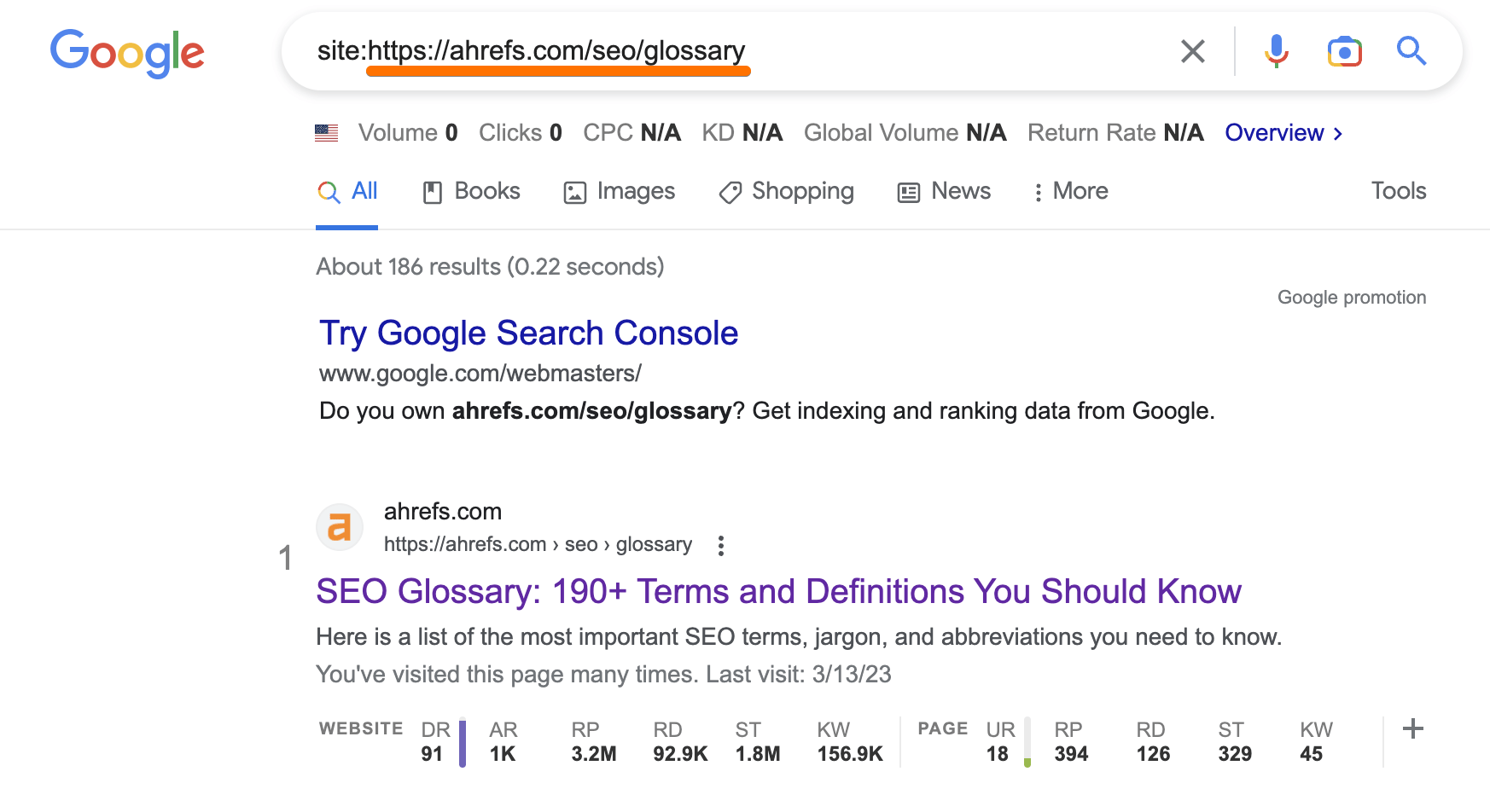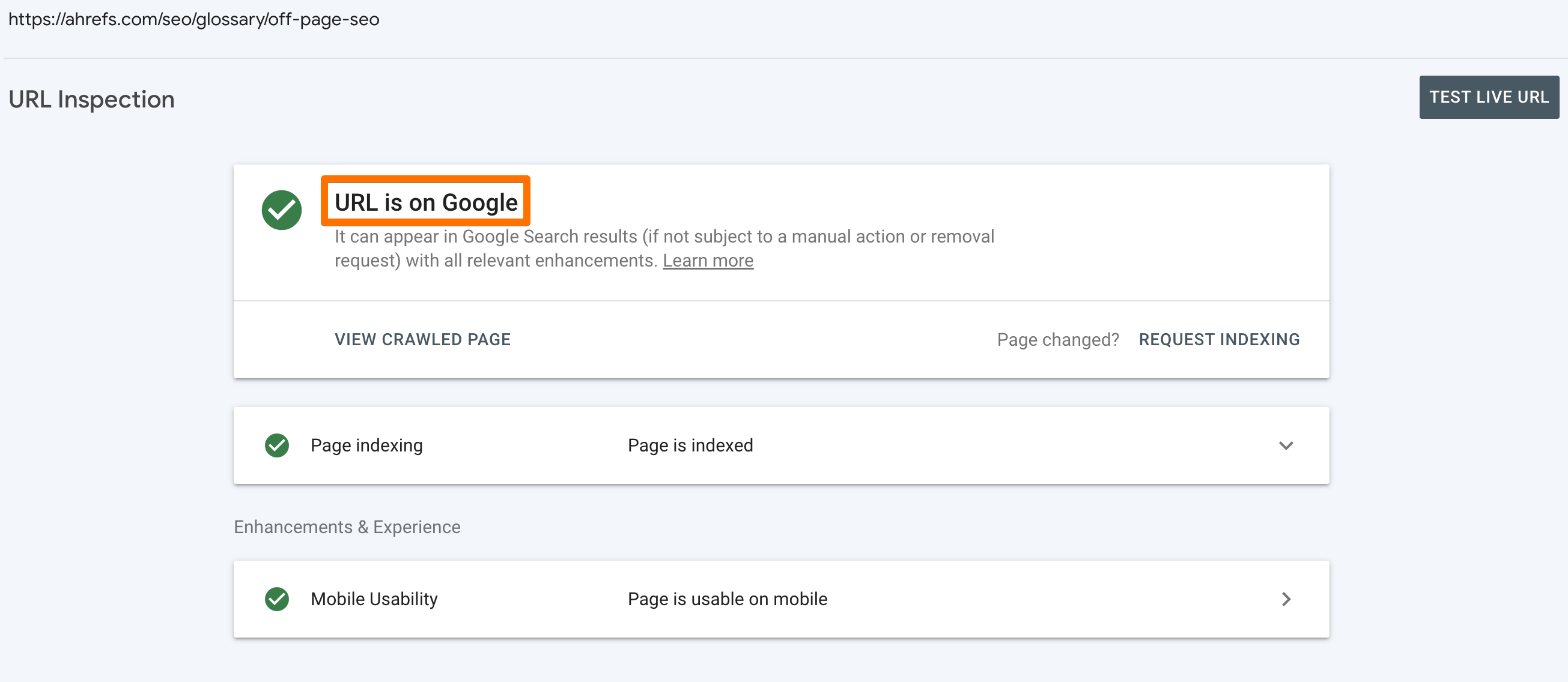Organic Search Results
What are Organic Search Results?
Organic Search Results are listings that appear on a search engine result page (SERP) for a particular user query. These listings are deemed the most relevant to the user’s search query and don’t include paid results (marked as “Sponsored” on Google).

Organic search results also include various SERP features, such as featured snippets, top stories, people also ask, local results, etc., that enhance SERPs.
The example below shows a Featured Snipped and People Also Asking SERP features.

Why are organic search results important?
Organic search results are important for both searchers and website owners.
Search engines have complex algorithms to determine the relevance and quality of web pages. This ensures that users get only the most accurate and relevant results for their search query.
Since organic search results don’t include ads (paid results), they are also a more trustworthy and impartial source of information for the searchers.
Unlike paid advertisements, organic search results do not require payment, making it a very cost-effective method for website owners to drive traffic to their websites. Because search engines determine the relevance of organic results, these are often seen as more trustworthy and drive high-quality traffic to websites.
To attract and retain users, search engines like Google aim to provide them with the most relevant and useful search results. Organic search results help them achieve this goal. After all, search engines primarily make money through advertising, so in order to maintain their advertising revenue, they need to provide an excellent user experience.
How to rank in Google’s organic search results?
A higher rank on search engine result pages usually translates to more organic traffic on the website. A study conducted by Backlinko showed that only 0.63% of Google searchers click on results from the second page.
Here are a few tips for ranking in Google’s organic search results:
1. Make sure your website is crawlable and indexable
Google cannot rank your website unless it is crawlable and indexable.
The easiest way to check whether a page has been indexed is by conducting a site:[url] search. If the website has been indexed, you should see at least one search result.

Another way to check a page’s crawl/indexing status and issues is through the “Inspect URL” report of Google Search Console.

2. Create SEO content
SEO content is specifically designed to rank in search engines. Quality SEO content is written for humans but uses SEO writing techniques and on-page optimization that help Google better understand it and connect it with relevant search queries.
Creating SEO content involves:
- Keyword research
- Search intent analysis
- Expertise
- Creativity
3. Follow the best practices of on-page SEO
On-page SEO is extremely important as it helps search engines better understand the purpose and relevance of the page.
The basics of on-page SEO include:
- Using target keywords in prominent places, such as title, H1, and subheaders
- Writing engaging title tags to attract clicks from SERPs
- Using short descriptive URLs
- Optimizing images
- Using structured data
4. Get more backlinks
Backlinks are one of the most important Google ranking factors. The more backlinks a website has, the more traffic it gets from Google. In link building, the quality and relevance of the referring page are very important.
There are various ways to get more backlinks to your website. Here are a few that you can use:
- Broken link building: finding a broken link on someone else’s page and suggesting your own page as a replacement.
- Guest blogging: writing a blog post for another website and getting a link back to your site in return.
- Unlinked mentions: finding unlinked mentions of your brand and asking to add a link to your site.